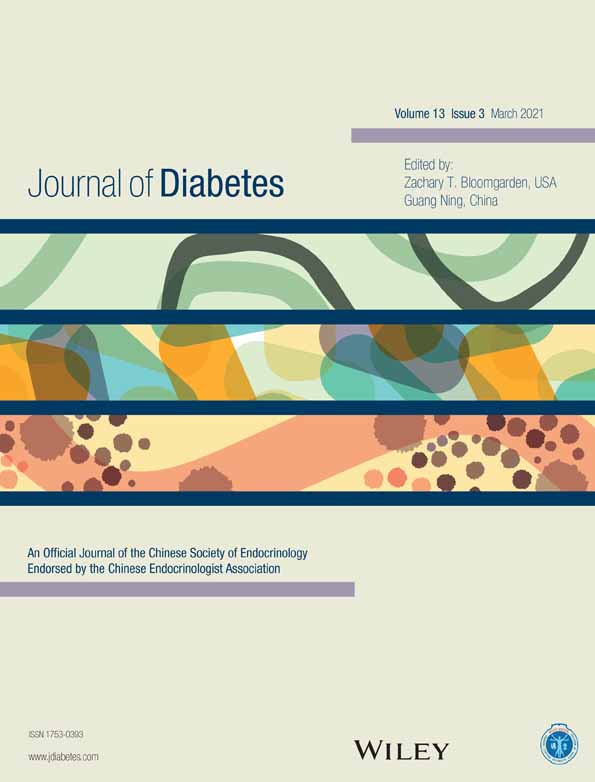Does inpatient hyperglycemia predict a worse outcome in COVID-19 intensive care unit patients?
住院期间的高血糖是否预示重症监护病房的新冠肺炎患者预后更差?
Abstract
enBackground
We undertook this study to evaluate the association between hyperglycemia and outcomes in patients with coronavirus disease 2019 (COVID-19) admitted to the intensive care unit (ICU).
Methods
We conducted a multicenter retrospective study involving all adults with COVID-19 admitted to the ICU between March and May 2020. Patients were divided into normoglycemic (average blood glucose <140 mg/dL) and hyperglycemic (average blood glucose ≥140 mg/dL) groups. Outcomes such as mortality, need and duration of mechanical ventilation, and length of hospital and ICU stays were measured.
Results
Among 495 patients, 58.4% were male with a median age of 68 years (interquartile range [IQR]: 58.00-77.00), and baseline average blood glucose was 186.6 (SD ± 130.8). Preexisting diabetes was present in 35.8% of the studied cohort. Combined ICU and hospital mortality rates were 23.8%; mortality and mechanical ventilation rates were significantly higher in the hyperglycemic group with 31.4% vs 16.6% (P = .001) and 50.0% vs 37.2% (P = .004), respectively. Age above 60 years (hazard ratio [HR] 3.21; 95% CI 1.78, 5.78) and hyperglycemia (HR 1.79; 95% CI 1.14, 2.82) were the only significant predictors of in-hospital mortality. Increased risk for hyperglycemia was found in patients with steroid use (odds ratio [OR] 1.521; 95% CI 1.054, 2.194), triglycerides ≥150 mg/dL (OR 1.62; 95% CI 1.109, 2.379), and African American race (OR 0.79; 95% CI 0.65, 0.95).
Conclusions
Hyperglycemia in patients with COVID-19 is significantly associated with a prolonged ICU length of stay, higher need of mechanical ventilation, and increased risk of mortality in the critical care setting. Tighter blood glucose control (≤140 mg/dL) might improve outcomes in COVID-19 critically ill patients; evidence from ongoing clinical trials is needed.
摘要
zh背景
我们开展了这项研究, 以评估入住重症监护病房(ICU)的新型冠状病毒肺炎(COVID-19)患者高血糖与预后的关系。
方法
我们进行了一项多中心回顾性研究, 研究对象为2020年3月至5月间入住ICU的所有患有COVID-19的成年人。将患者分为正常血糖组(平均血糖<140 mg/dL)和高血糖组(平均血糖≥140 mg/dL)。观察结果包括死亡率, 需要机械通气的时间, 住院和ICU的时间。
结果
495例患者中, 男性占58.4%, 中位年龄68岁(四分位数范围:58.00~77.00), 基线平均血糖为186.6(SD±130.8)。35.8%的研究队列中存在既往糖尿病。ICU和住院综合死亡率为23.8%, 高血糖组与正常血糖组相比, 死亡率为31.4%比16.6%(P=0.001), 机械通气率为50.0%比37.2%(P=0.004)。60岁以上(危险比HR 3.21; 95% Cl 1.78, 5.78)和高血糖(HR 1.79; 95% Cl 1.14, 2.82)是住院死亡率的唯一有意义的预测因素。使用类固醇(OR 1.521; 95%CI 1.054, 2.194), 三酰甘油≥150 mg/dL(OR 1.62; 95%CI 1.109, 2.379)和非洲裔美国人(OR 0.79; 95%CI为0.65, 0.95)的患者高血糖风险增加。
结论
COVID-19患者的高血糖与ICU住院时间延长, 更高的机械通气需求以及重症监护环境中死亡风险的增加显著相关。更严格的血糖控制(≤140mg/dL)可能会改善COVID-19危重患者的预后; 还需要正在进行的临床试验证据进一步证明该结论。
CONFLICT OF INTEREST
The authors declare that there are no conflicts of interest.




